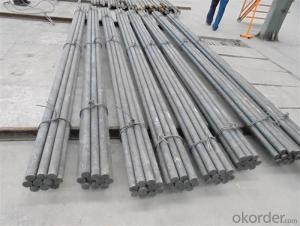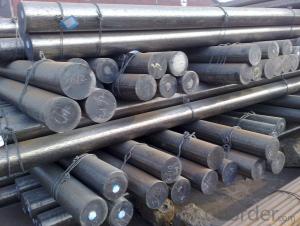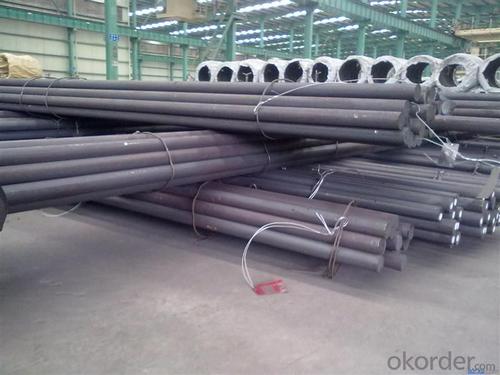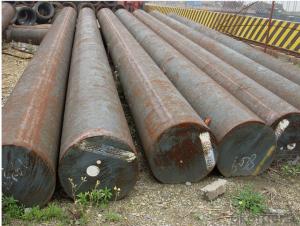AISI 4130, 4130 Steel, 4130 Steel Price
- Loading Port:
- Tianjin
- Payment Terms:
- TT OR LC
- Min Order Qty:
- 25 m.t.
- Supply Capability:
- 50000 m.t./month
OKorder Service Pledge
OKorder Financial Service
You Might Also Like
Specification
AISI 4130, 4130 Steel, 4130 Steel Price
Product Description:
Name | Aisi 4130, 4130 steel, 4130 steel price | |||
Features | 1, Chromium molybdenum alloy steel | |||
2, Supplied in the hardend and tempered condition | ||||
3, Lower carbon content, provide better weldability | ||||
4, Readily machineable in the condition of 18-22 HRC | ||||
Applications | 1, Widely used for oil and gas sector | |||
2, Components such as valve bodies, pumps and fittings | ||||
Sizes | Round bar | Diameter(mm) | Length(mm) | |
Max 800 | Max 9000 | |||
Plate | Thickness(mm) | Width(mm) | Length(mm) | |
Max 800 | Max 2200 | Max 9000 | ||
The above is our regular size, We also can provide customized sizes! | ||||
Packing | 20ft: GW 27T; (5.80mX2.13mX2.18m)
40ft: GW 27T; (11.8mX2.13mX2.18m) | |||
Price | The price will change according to the weight of the steel you need. | |||
Chemical analysis
C | Si | Mn | P≤ | S≤ | Cr | Ni≤ | Mo |
0.28~0.33 | 0.15~0.35 | 0. 40~0.60 | 0.040 | 0.040 | 0.80~1.10 | 0.030 | 0.15~0.25 |
Application:
AISI 4130 is a chromium molybdenum alloy steel specification. It is supplied as round bar commonly in the hardened and tempered condition with a hardness of 18-22 HRc. With a lower carbon content range AISI 4130 provides better weldability, at the expense of through thickness strength, than that of other oil and gas steel grades such as AISI 4140. AISI 4130 alloy steel is readily machineable in the supply condition of 18-22 HRc.
Specification:
Round bar | Diameter(mm) | Length (mm) | |
10~1500 | 2000~5800 | ||
plate/sheet | Thickness(mm) | Width (mm) | Length (mm) |
10~1500 | 80~2300 | 2000~5800 |
Round bar /plate can be supplied as full bar lengths or cut pieces. AISI 4130 ground steel bar can be supplied, providing a quality alloy steel precision ground bar to tight tolerances.
Product Show:
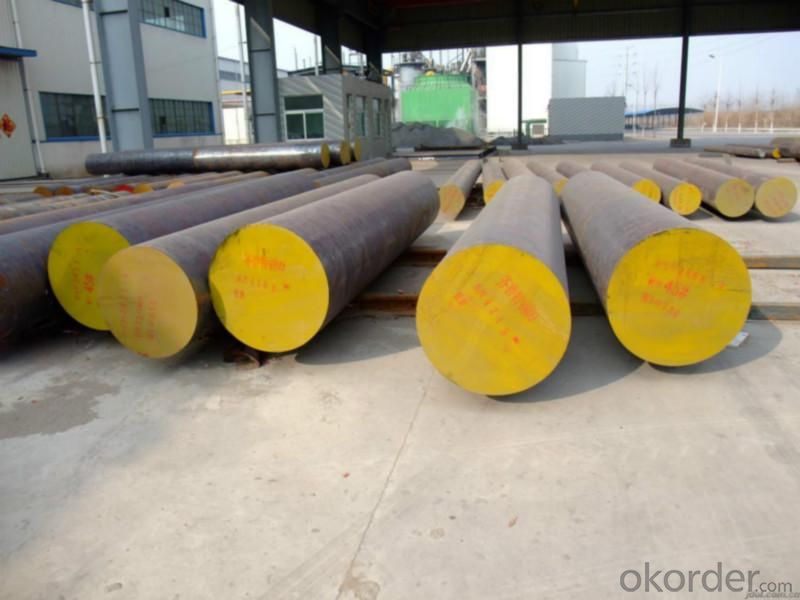
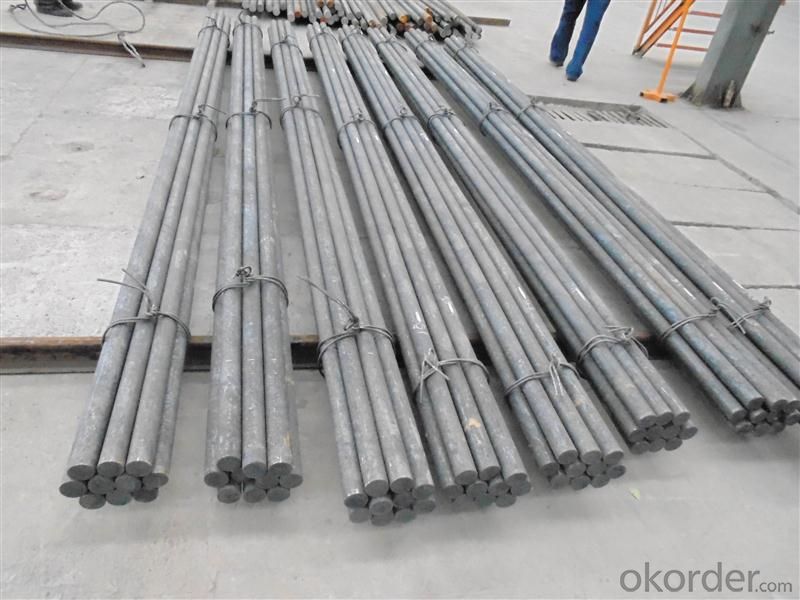
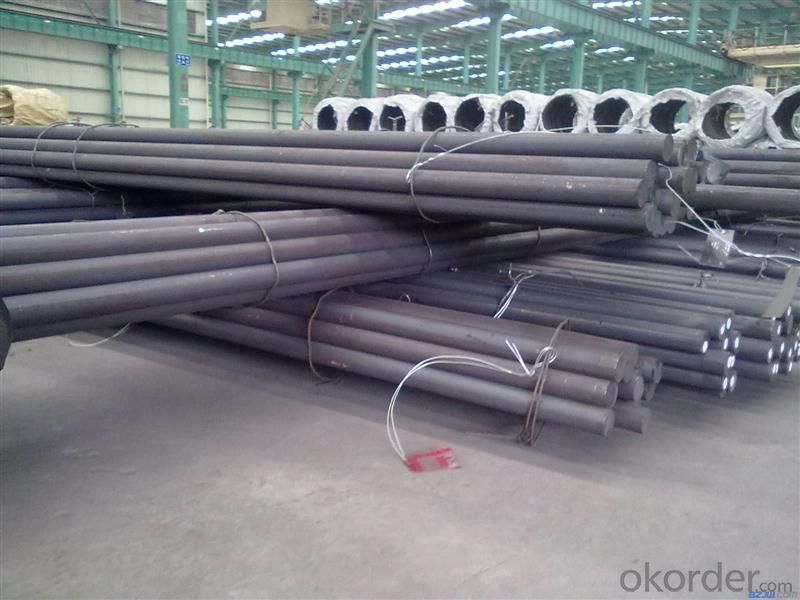
- Q: How does special steel contribute to the marine aftermarket industry?
- Special steel contributes to the marine aftermarket industry by providing high-strength and corrosion-resistant materials for various marine components and structures. This type of steel is essential for manufacturing propellers, shafts, valves, and other critical parts that ensure the performance and longevity of marine vessels. Additionally, special steel enables the construction of lighter and more fuel-efficient ships, reducing operating costs and environmental impact. Overall, the use of special steel in the marine aftermarket industry enhances safety, efficiency, and sustainability in the maritime sector.
- Q: How is heat-resistant steel used in the production of furnaces and boilers?
- Heat-resistant steel is used in the production of furnaces and boilers due to its ability to withstand high temperatures without deformation or failure. This type of steel is specifically designed to maintain its strength and structural integrity even when exposed to extreme heat conditions. By using heat-resistant steel, furnaces and boilers can efficiently generate and contain high levels of heat, ensuring a safe and reliable operation.
- Q: What are the factors that affect the corrosion resistance of special steel?
- The factors that affect the corrosion resistance of special steel include the composition and content of alloying elements, surface finish and treatment, environmental conditions such as temperature, humidity, and exposure to chemicals, as well as the presence of protective coatings or inhibitors. Additionally, the manufacturing process and heat treatment can also influence the corrosion resistance of special steel.
- Q: What are the magnetic properties of special steel?
- Special steel can exhibit a range of magnetic properties depending on its composition and processing. It can be non-magnetic, weakly magnetic, or strongly magnetic. The specific magnetic properties of special steel can be tailored to meet specific requirements for different applications.
- Q: How does special steel perform in high-temperature oxidation?
- Special steel performs well in high-temperature oxidation due to its enhanced resistance to heat and corrosion. It exhibits superior strength and stability, retaining its mechanical properties even at elevated temperatures. Additionally, the presence of alloying elements like chromium, nickel, and molybdenum in special steel forms a protective oxide layer that prevents further oxidation. This makes special steel an ideal choice for applications requiring resistance to high-temperature oxidation, such as in aerospace, power generation, and chemical industries.
- Q: What are the different tempering techniques used for special steel?
- There are several tempering techniques used for special steel, including air tempering, oil tempering, water tempering, and salt bath tempering. Each technique involves heating the steel to a specific temperature and then cooling it at a controlled rate to achieve desired hardness, strength, and other mechanical properties.
- Q: What are the different machining techniques for special steel?
- There are several different machining techniques that can be used for special steel, depending on the specific requirements and characteristics of the steel. Some common machining techniques for special steel include turning, milling, drilling, grinding, and broaching. Each technique has its own advantages and is used to achieve different results, such as shaping the steel, removing material, or creating precise cuts and finishes. The choice of machining technique will depend on factors such as the desired outcome, the hardness and toughness of the steel, and the complexity of the part being machined.
- Q: What are the different construction grades of special steel?
- There are several different construction grades of special steel, including but not limited to ASTM A36, ASTM A572, ASTM A514, and ASTM A588. These grades vary in their mechanical properties and are specifically designed to meet different construction requirements, such as strength, durability, or corrosion resistance.
- Q: How is ultra-high-strength steel used in the construction industry?
- Ultra-high-strength steel is commonly used in the construction industry to enhance the structural integrity and resilience of buildings and infrastructure. Its exceptional strength-to-weight ratio allows for the creation of lighter and more durable structures. This steel variant is often employed in applications such as high-rise buildings, bridges, and offshore structures, where its superior strength properties provide increased safety and load-bearing capacity.
- Q: How does special steel perform in terms of wear resistance in abrasive environments?
- Special steel performs very well in terms of wear resistance in abrasive environments. Its unique composition and treatment processes enhance its hardness and toughness, making it highly resistant to abrasion caused by particles and friction. This allows special steel to withstand harsh conditions and maintain its integrity for prolonged periods, reducing the need for frequent replacements or repairs.
Send your message to us
AISI 4130, 4130 Steel, 4130 Steel Price
- Loading Port:
- Tianjin
- Payment Terms:
- TT OR LC
- Min Order Qty:
- 25 m.t.
- Supply Capability:
- 50000 m.t./month
OKorder Service Pledge
OKorder Financial Service
Similar products
Hot products
Hot Searches
Related keywords

